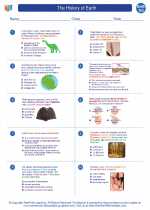Vitamin B12
Vitamin B12, also known as cobalamin, is a water-soluble vitamin that plays a crucial role in maintaining a healthy nervous system and producing red blood cells. It is essential for various bodily functions, including DNA synthesis, energy production, and neurological function.
Sources of Vitamin B12
Vitamin B12 is naturally found in animal products, such as meat, fish, eggs, and dairy products. It is not found in plant foods, so individuals following a vegan or vegetarian diet may need to supplement with vitamin B12 or consume fortified foods.
Functions of Vitamin B12
1. Red Blood Cell Formation: Vitamin B12 is necessary for the production of red blood cells in the bone marrow. A deficiency in B12 can lead to a type of anemia known as megaloblastic anemia, which results in the production of abnormally large and immature red blood cells.
2. Neurological Function: B12 plays a vital role in maintaining the health of the nervous system. It is involved in the formation of myelin, a protective sheath that surrounds nerve fibers and ensures proper nerve conduction.
3. DNA Synthesis: Vitamin B12 is essential for the synthesis of DNA, the genetic material in all cells. It works in conjunction with folate to support cell division and growth.
Deficiency Symptoms
A deficiency in vitamin B12 can lead to a range of symptoms, including fatigue, weakness, numbness or tingling in the hands and feet, difficulty walking, memory problems, and mood changes. Prolonged deficiency can lead to irreversible neurological damage.
Study Guide
.◂Earth Science Worksheets and Study Guides High School. The History of Earth

 Worksheet/Answer key
Worksheet/Answer key
 Worksheet/Answer key
Worksheet/Answer key
